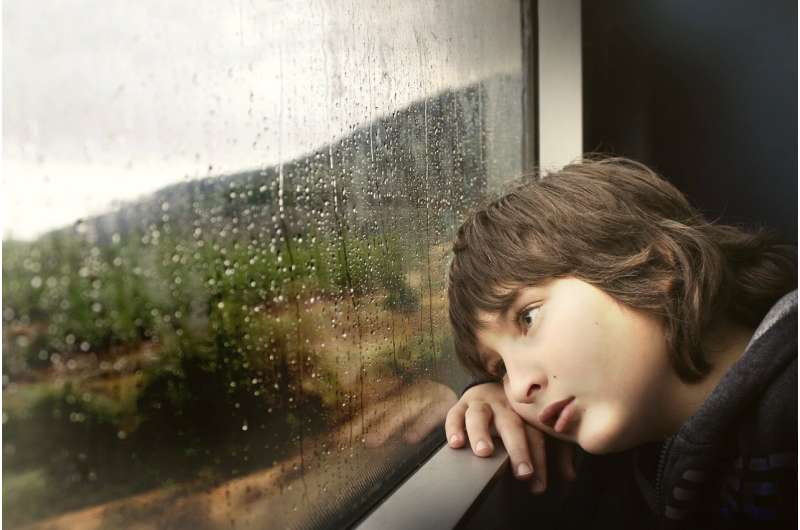This article has been reviewed according to Science X's editorial process and policies. Editors have highlighted the following attributes while ensuring the content's credibility:
fact-checked
trusted source
written by researcher(s)
proofread
Is your child experiencing winter burnout? Here's what to look out for

We know children often miss more school days in the winter months, as sickness sets in.
But at this time of year, parents and teachers can also notice children disengaging from preferred activities and finding it more difficult to get through the day.
What are the signs a child may be burned out? And how can you help?
The winter months are tough
Burnout can happen at any time, but children are more likely to experience seasonal fatigue during winter, making burnout more likely.
Cold, wintry weather and shorter hours of sunlight have impacts on children, just like the rest of us.
At school, there is an increased likelihood of rainy day programs where children stay inside for most of the day. These changes limit opportunities for children to exert energy through a game of footy (soccer) or racing friends onto the monkey bars.
Poor weather conditions also reduce opportunities to head to a playground after school or shoot some hoops in the driveway.
Classrooms are a breeding ground for illness and as children get more rundown, they are more likely to get sick.
Beyond the downsides of being unwell, when children are absent they are isolated from their peers. Children at school may also feel lonely when their friends are away.
It's now also many months since the long summer break. So it is not surprising your child might be running out of steam.
What is burnout?
Burnout is more than just feeling tired or wanting a break from regular activities. Burnout refers to a state of mental, physical and emotional exhaustion.
We know it can impact children as well as adults.
In children, we see signs of burnout in the way they approach previously enjoyed activities and relationships.
In the short term, we see more school refusal, sleeping a lot more or finding it difficult to get to sleep, increases in appetite or eating a lot less, coming home excessively tired, being less interested in talking about their day, or having more arguments with friends.
We also see children try to avoid attending extracurricular activities or family events they typically enjoy.
There are long-term impacts
But the long-term impacts of unsupported burnout are even more damaging.
Research shows that prolonged feelings of stress and exhaustion in children can lead to disengagement from learning activities, and school avoidance.
When fatigue and anxiousness last for more than a few days, we can also see children not wanting to socialize with peers, which in turn can lead to social problems and further isolation.
Without proactive support, research shows being burned out can lead to ongoing reductions in physical fitness, attention span and working memory (where we hold short-term information).
What can parents do?
Parents should be on high alert for signs of burnout at this stage of the term. There are lots of ways you could support your child, including:
- give your child a well-being break away from school for a day or two to reset and recharge
- take a short pause on extracurricular activities and reevaluate the necessity of other regular commitments. Is your child doing too much?
- organize some special family time, such as watching a show together or playing a board game (homework tasks can wait)
- speak to your child about how it is okay to reach out to you or other trusted adults if they are finding things more difficult than usual.
If your child isn't bouncing back to their usual self within a few days, talk to your child's teacher and see what they are noticing. Teachers will have insights into any changes in the classroom routine that might be influencing your child's mood or behavior.
If you remain concerned, make an appointment with their GP or pediatrician to discuss what you are noticing and investigate ways to help.
What can teachers do?
Teachers can also help their students through the gloomy winter months. No doubt, they too will need to recharge their own energy levels, almost halfway into the year.
Teachers could focus more on well-being than education concepts. This could include "gentle afternoons" with mindfulness activities, yoga sessions or a focus on physical and cognitive games.
There is no perfect recipe for how long these strategies are needed—parents and teachers know their children best, and can evaluate the situation and find the most appropriate path forward.
The goal is to reduce the likelihood of children being burned out, and ensure they can be in the best frame of mind to enjoy school, their lessons and their friends.
This article is republished from The Conversation under a Creative Commons license. Read the original article.![]()




















